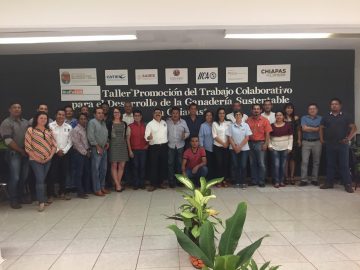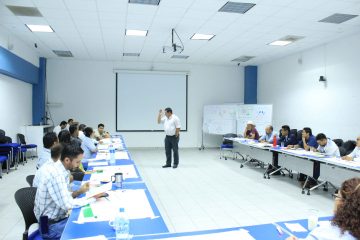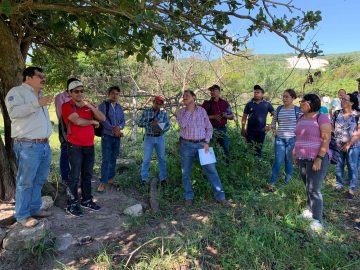In 2019, the project BioPaSOS has advanced with its objective of promoting and strengthening sustainable livestock in Mexico, specifically in Chiapas, Jalisco and Campeche; through capacity building, research for decision-making and generation of inter-institutional alliances. Currently, BioPaSOS impacts in 20 municipalities.

Through the implementation of Farmer Field Schools (FFS), the project has trained 1,231 producers on 35 different subjects such as biodiversity conservation and monitoring, positive cattle raising practices, pasture management, forage banks, setting silvopastoral systems, management of natural resources, and others. This methodology has reached nearly 13,200 people
In Campeche, 80.5% of the people who received training with the FFSs were men and 19.5% were women. In Chiapas, 68.82% were men and 31.18% were women; while in Jalisco 80.5% were men and 19.5% were women.

In addition, 68 technicians from local institutions and about 100 university students have strengthened their knowledge of sustainable cattle raising, by participating in workshops, keynote talks, demonstration days, FFS, guided tours, and exchange of experiences. In turn, six virtual forums led by experts have been developed, with the participation of 351 people from across Latin America.
This effort is accompanied by the formation of groups that include the public sector, academia, civil associations and producers. In Campeche, the Sustainable Cattle Raising Learning Community was created, in Chiapas participationin the Healthy and Responsible Cattle-Raising Group has taken place, and in Jalisco work is being done on the construction of the Silvopastoral Working Group of the South Coast Region.

Also, in Chiapas, CATIE participates, through BioPASOS, in the Technical Advisory Committee of REDD +, a space formed by State Secretariats, NGOs and others, which contributes to generating recommendations to develop sustainable production strategies.
On the other hand, only in 2019 six investigations have been carried out with research centers and academics of each state.
BioPaSOS closes 2019 by maintaining formal alliances with 38 local partners, including government, academic, scientific, private sector institutions, NGOs, and cattle raising associations.
This initiative has been implemented since 2017 by CATIE, with IICA, and the support of SADER and CONABIO.

